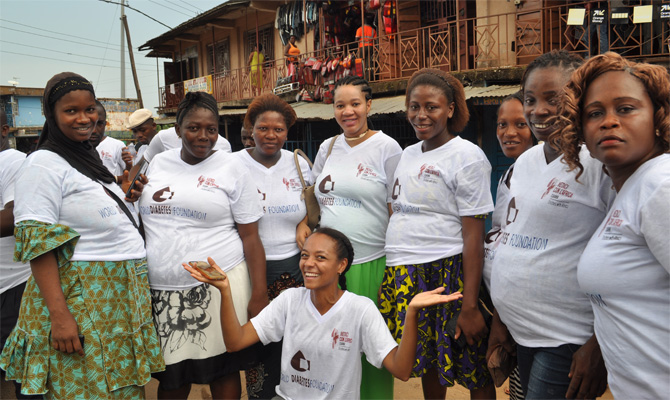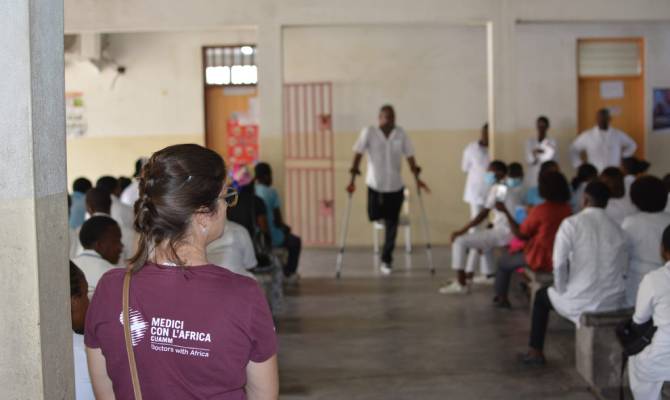The streets of Freetown, Sierra Leone were filled with a vibrant public parade with music and dancing, and other events were organized in Maputo, Mozambique, plus in more than 150 cities worldwide. Organized by the International Diabetes Federation and the World Health Organization, the day was first established in 1991 with the goal of raising awareness and informing the public about diabetes, its prevention, and proper management.
“We paraded and danced through Freetown’s main streets,” says Hawanatu, a CUAMM worker in Sierra Leone. “We handed out t-shirts and information to encourage people to exercise and follow a healthy lifestyle, warning them about the risks of diabetes.”
Long considered a prerogative of the West, diabetes has started to spread rapidly in sub-Saharan Africa in recent decades, now affecting as many as one of five adults in some countries. Some of the causes are growth and longer life spans, but mostly changed lifestyles and new eating habits. But there is still limited awareness of the scope of the problem with few diagnoses and even less treatment, which leads to complications and premature death.
“Diabetes is considered a ‘neglected’ disease in Mozambique and there is no data on its prevalence and its resulting clinical, social, and economic impact,“ says Damiano Pizzol, CUAMM’s manager of operational research in Mozambique. “But those who work in the field come across patients every day who come to the health centers and hospitals with extreme symptoms and complications that have become irreversible, which can easily lead to death in these settings.”
With the support of the World Diabetes Foundation (WDF), Doctors with Africa CUAMM has been working against diabetes in Sierra Leone and Mozambique since early 2016. In Sierra Leone, where there is a lack of solid data, the first need is to identify the extent of the problem. To these ends, CUAMM is testing all pregnant women who come to Princess Christian Maternity Hospital in Freetown, the capital’s main maternity hospital. Gestational diabetes affects fetal development and can cause obstetrical complications at birth. By the end of the project, we expect to have tested 60,000 pregnant women, based on the number of women who come to the hospital.
In Mozambique, CUAMM is adopting a national approach, focusing on two fronts: providing technical support to the Ministry of Health and working with local associations for prevention and awareness-raising. This will also be the approach in Angola and Ethiopia, where, also with WDF‘s support, CUAMM will develop similar projects starting in 2018.
The goal continues to be reinforcing the health system: training qualified personnel, building new facilities, ensuring drug procurement, and better data management and outcome analysis.
We are working, including through today’s events, to keep attention on a disease that is too often neglected and can have an enormous impact on the health of so many.





